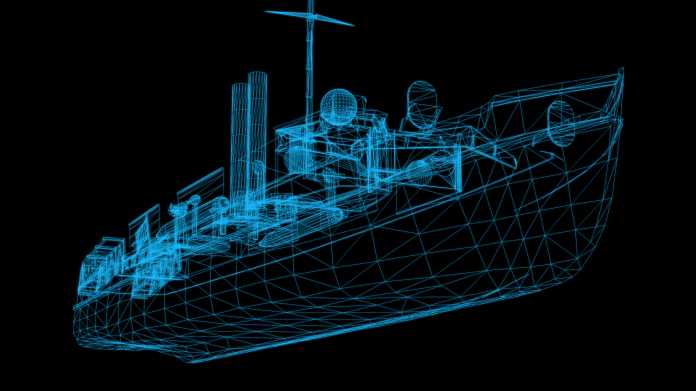The new freight train connection between China and the JadeWeserPort deep-water port in Wilhelmshaven has started up in the first six months of its existence. Since July, seven trains with 22 wagons each have rolled from Hefei in eastern China to the JadeWeserPort freight center, as the port’s marketing company announced at the request of the German press agency.
More trips planned
Almost 1000 containers from the Far East would have reached the JadeWeserPort in 2021 by rail. According to the marketing company, the connection was primarily used to transport consumer goods for regional supply and for destinations in the hinterland, which were transshipped in the port.
“We are very satisfied with this result, and the outlook for the coming year is encouraging, as our Chinese partners have set themselves the goal of significantly increasing the frequency of the connection,” said managing director Andreas Bullwinkel.
A representative of the port in China is in talks with other operating companies from central China and in the south of the country. “The aim is to develop additional rail services between JadeWeserPort and China.”
More than 10,000 kilometers
The first freight train from China reached the JadeWeserPort in mid-July after more than 10,000 kilometers. It was the first direct train ever to run to Lower Saxony via the People’s Republic’s New Silk Road Initiative. The train, loaded with around 100 containers full of household appliances, textiles and electrical goods at the time, had passed Kazakhstan, Russia, Belarus and Poland on its way to Lower Saxony.

The operator of the train connection is the state-owned port company Hefei International Land Port (HILP). From the point of view of the JadeWeserPort marketing company, the train connection should complement the container ship traffic. This connection should be of particular interest for goods that are quickly transported and required.
It’s faster by rail
While goods from China reach Wilhelmshaven by rail after around 20 days, according to the port, transport by ship takes up to 32 days. The extent to which the corona pandemic had an impact on the amount of cargo on trains cannot be definitely answered, said Bullwinkel. “However, with free slots and flexible handling capacities on the rails, the port has made a contribution to relieving the strained supply chains.”
Even around nine years after its opening, Germany’s only deep-water port is still not fully utilized and is considered a problem child among the nine seaports in Lower Saxony. In the first Corona year 2020, only 423,000 standard containers were handled in Wilhelmshaven. This corresponds to a decrease of 33.8 percent compared to 2019. The container terminal is designed for an annual turnover of 2.7 million standard containers.

(kbe)
